Michigan Duck Hunting Guides: An Overview
Michigan offers diverse waterfowl opportunities, from southern fields to northern hotspots.
Experienced guides enhance success, navigating regulations and prime hunting locations for memorable experiences.
Understanding Michigan’s Waterfowl Hunting Landscape
Michigan’s diverse ecosystems create exceptional waterfowl hunting. Southern regions boast agricultural fields attracting geese and ducks, while northern areas offer expansive wetlands and forests. Understanding migratory patterns is crucial; guides leverage this knowledge. The state’s geography, combined with diligent DNR conservation efforts, supports healthy waterfowl populations. Hunters should familiarize themselves with varied terrains and seasonal changes impacting bird distribution for optimal results.

Choosing the Right Michigan Duck Hunting Guide
Selecting a skilled guide is vital for a successful hunt. Consider experience, local knowledge, and offered services to ensure a safe and productive waterfowl adventure.
Factors to Consider When Selecting a Guide
Prioritize guides with extensive Michigan waterfowl hunting experience and a deep understanding of local duck behavior and migration patterns. Evaluate their knowledge of specific hunting regions, including both public and private land options.
Assess communication skills – a good guide clearly explains strategies and safety protocols. Inquire about their success rates, but remember these can vary. Finally, consider the guide’s commitment to ethical hunting practices and client satisfaction.
Guide Licensing and Insurance
Ensure your chosen Michigan duck hunting guide possesses all required state licenses and permits, demonstrating legal operation. Crucially, verify they carry comprehensive liability insurance to protect you from potential accidents or injuries during the hunt.
Confirm the guide’s adherence to Michigan DNR regulations regarding guided hunts. A reputable guide will readily provide proof of licensing and insurance upon request, ensuring a safe and legally compliant experience.

Top Regions for Duck Hunting in Michigan
Southern Michigan boasts abundant fields, while the north offers diverse wetlands and inland lakes. Guides expertly navigate these areas for optimal waterfowl harvests.
Southern Michigan Duck Hunting Opportunities
Southern Michigan presents unique duck hunting experiences, focusing on flooded agricultural fields and managed wetlands. These areas attract large concentrations of mallards, Canada geese, and other waterfowl species.
Experienced guides possess intimate knowledge of these locations, utilizing effective decoy spreads and calling techniques to draw birds within range. Success often hinges on scouting, adapting to changing conditions, and understanding local bird movements. Expect fast-paced action and plentiful shooting opportunities in this productive region.
Northern Michigan Duck Hunting Hotspots
Northern Michigan’s diverse landscape offers distinct duck hunting opportunities, centered around inland lakes, rivers, and expansive marshes. This region attracts a variety of ducks, including wood ducks, goldeneyes, and ringnecks. Guides specializing in northern hunts excel at navigating these remote areas, employing specialized tactics like jump-shooting and utilizing layout boats. Expect scenic beauty alongside challenging, rewarding hunts in this less-crowded, wild setting.
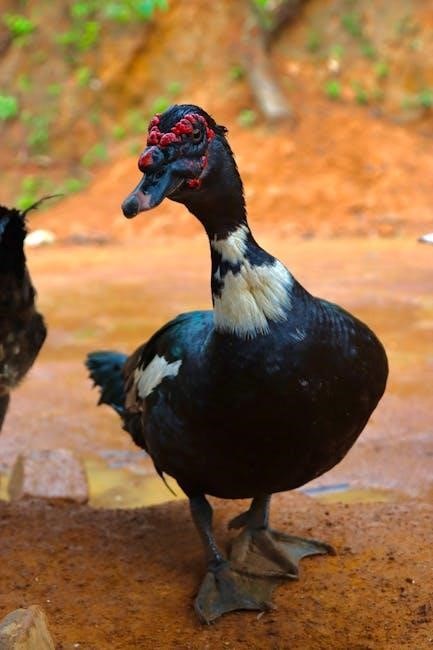
Duck Hunting Seasons and Regulations in Michigan
Michigan establishes specific duck hunting seasons and bag limits annually. Hunters must adhere to these regulations, including licensing requirements and legal shooting hours, for ethical hunts.
Michigan Duck Hunting Season Dates
Michigan’s duck hunting seasons are typically divided into segments, varying by zone to optimize waterfowl harvest. The early goose season often precedes the primary duck season, offering initial opportunities. Generally, the season commences in late September or early October, continuing through December. Specific dates are determined annually by the Michigan Department of Natural Resources (DNR), considering waterfowl populations and migration patterns. Checking the official DNR website is crucial for the most current and accurate season date information before planning your hunt.
Bag Limits and Hunting Regulations
Michigan establishes daily bag limits for various duck species, ensuring sustainable harvests. Hunters must adhere to these limits, identifying ducks correctly before shooting. Regulations cover legal shooting hours, permitted firearms, and requirements for decoys and calls. Hunter orange clothing is mandatory for safety; Reviewing the Michigan Hunting Regulations digest is essential; it details all rules and restrictions to ensure a legal and ethical hunt.
Types of Duck Hunts Offered by Guides
Michigan guides provide diverse hunts: private land layouts for controlled shooting, and public land options requiring more scouting. Choices depend on preference and budget.
Guided Duck Hunts on Private Land
Private land hunts, often arranged through Michigan guides, offer a more exclusive experience. These hunts typically involve pre-scouted locations with established blinds and carefully managed decoy spreads. Expect controlled shooting situations, potentially over flooded fields or timbered wetlands.
Guides handle access permissions and ensure ethical hunting practices, maximizing your chances for a successful and enjoyable waterfowl outing. These hunts generally come at a premium cost.
Public Land Duck Hunting with a Guide
Michigan guides also facilitate hunts on public land, offering expertise navigating regulations and locating productive spots. While potentially more challenging due to hunter pressure, skilled guides possess the knowledge to find overlooked areas. Expect more walking and scouting, but also the opportunity for a rewarding, budget-friendly hunt.
Guides manage logistics and ensure compliance with all DNR rules.
Equipment and Gear for Michigan Duck Hunting
Essential gear includes shotguns, decoys, waders, and calls. Proper camouflage, a hunting blind, and comfortable boots are also vital for a successful Michigan hunt.
Essential Duck Hunting Gear Checklist
Preparing for a Michigan duck hunt requires a detailed checklist. Include a 12-gauge or 20-gauge shotgun, appropriate ammunition (steel shot is often required), and a comfortable vest. Don’t forget decoys – mallards, pintails, and teal are popular choices. Waders are crucial for navigating wetlands, alongside waterproof gloves and a hat. A duck call, binoculars, and a hunting knife complete the essential list, ensuring a safe and productive outing.
Waders, Decoys, and Calls
Waders are paramount in Michigan’s wetlands, offering dry comfort. Decoys, mimicking ducks, attract birds within shooting range; consider variety for realism. Duck calls, skillfully used, lure waterfowl closer – mastering different calls is key. Quality gear enhances the hunt, but ethical usage and respect for wildlife remain vital components of a successful Michigan duck hunting experience.

The Role of Michigan’s DNR in Waterfowl Management
Michigan’s DNR actively conserves waterfowl habitats and monitors populations. Their efforts ensure sustainable hunting opportunities and healthy ecosystems for future generations of hunters.
DNR Conservation Efforts
Michigan’s Department of Natural Resources dedicates significant resources to wetland preservation and restoration, crucial for waterfowl breeding and feeding. These initiatives include habitat improvement projects, strategic land acquisitions, and collaborative partnerships with conservation organizations.
The DNR also manages public hunting lands, ensuring accessibility while promoting responsible resource management. These sustained efforts directly benefit both waterfowl populations and the overall hunting experience within the state.
Waterfowl Population Monitoring
The Michigan DNR actively monitors waterfowl populations through annual surveys, breeding pair counts, and harvest data analysis. These efforts provide valuable insights into population trends, informing hunting season adjustments and conservation strategies. Collaboration with federal agencies and universities enhances data accuracy and scope.
Understanding population dynamics ensures sustainable hunting practices and long-term waterfowl health within Michigan’s diverse ecosystems.
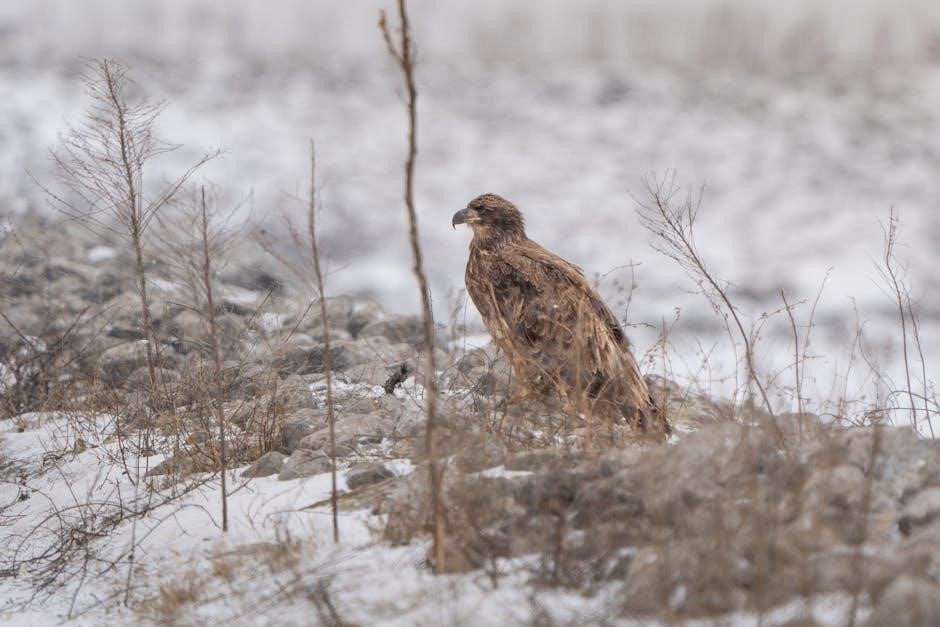
Cost of Hiring a Michigan Duck Hunting Guide
Guide fees vary based on hunt length and location, typically ranging from $200 to $600+ per person, per day. Packages often include meals and lodging.
Average Guide Fees and Packages
Michigan duck hunting guide costs generally fall between $200 and $600 daily per hunter, though premium experiences can exceed this. Half-day hunts are often available at a reduced rate.
Full packages frequently encompass lodging, meals, decoys, and transportation to/from hunting spots. Expect to pay extra for licenses, shells, and gratuities. Some guides offer customized packages tailored to group size and desired hunt style.
Additional Expenses to Budget For
Beyond guide fees, factor in a Michigan hunting license, waterfowl stamp, and federal duck stamp. Ammunition costs can add up quickly, especially during extended hunts. Transportation – gas, vehicle rental – is essential. Don’t forget lodging if not included in a package, plus meals and drinks. Finally, consider tipping your guide for exceptional service!
Booking Your Michigan Duck Hunting Trip
Secure your hunt well in advance, especially for peak seasons. Contact guides early to discuss availability, packages, and specific hunting preferences for a successful trip.
When to Book Your Hunt
Planning ahead is crucial for a Michigan duck hunting adventure. Ideally, book your guided hunt six to twelve months in advance, particularly if targeting popular dates like opening weekend or peak migration periods. Prime spots fill quickly, and guides often have limited availability. Early booking ensures you secure your preferred dates and desired type of hunt, maximizing your chances for a rewarding experience. Don’t delay – start researching and contacting guides today!
Questions to Ask Potential Guides
Before committing, thoroughly vet potential Michigan duck hunting guides. Inquire about their experience, success rates, and the specific hunting techniques they employ. Clarify what’s included in the package – meals, licenses, transportation, and equipment. Discuss their knowledge of local regulations and their commitment to ethical hunting practices. Don’t hesitate to ask about their contingency plans for inclement weather or low bird numbers.

Ethical Hunting Practices in Michigan
Responsible hunters prioritize fair chase, respecting wildlife and landowners. Adhering to regulations and promoting conservation ensures sustainable hunting for future generations in Michigan.
Fair Chase Principles
Michigan hunters embrace fair chase, ensuring a level playing field between hunter and game. This means avoiding methods that unfairly give an advantage, like shooting waterfowl from a motor vehicle or using electronic calls where prohibited.
Respecting the animal’s inherent right to a reasonable escape is paramount. Ethical hunters prioritize skill, knowledge of waterfowl behavior, and responsible shot placement, contributing to a sporting and sustainable hunt.
Respect for Landowners and Wildlife
Michigan duck hunting relies heavily on landowner cooperation. Guides prioritize obtaining explicit permission before accessing private property, demonstrating respect for their rights and land. Beyond that, ethical guides champion wildlife conservation, practicing responsible harvest and habitat stewardship. Minimizing disturbance to non-target species and leaving hunting areas clean are crucial components of respectful hunting practices.
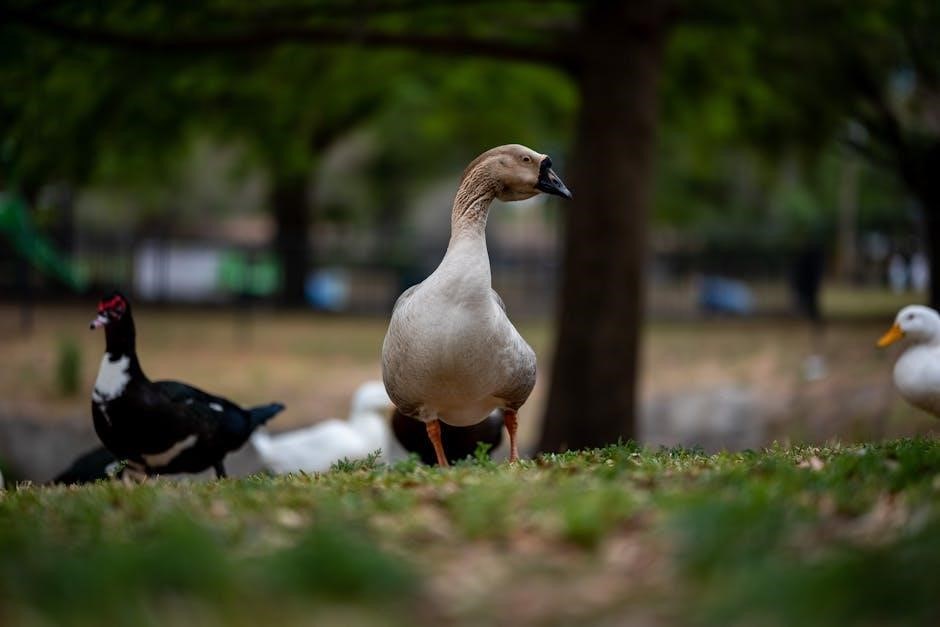
Michigan Duck Hunting Lodges and Accommodations
Michigan provides lodges ranging from luxurious to rustic cabins. Amenities vary, impacting comfort and convenience during your hunting trip; consider your preferences carefully.
Luxury Lodges vs. Rustic Cabins
Michigan duck hunting accommodations span a wide spectrum. Luxury lodges offer gourmet meals, comfortable beds, and often include extras like guided tours and cleaning services for harvested birds. Conversely, rustic cabins provide a more basic, immersive experience, appealing to hunters prioritizing affordability and a closer connection to nature.
Consider your budget and desired level of comfort when selecting lodging; both options can enhance your overall hunting adventure.
Amenities to Look For
When choosing Michigan duck hunting accommodations, prioritize amenities enhancing your trip. Essential features include secure gun storage, bird cleaning facilities, and comfortable common areas for relaxation. Consider lodges offering prepared meals, wader drying rooms, and transportation to hunting spots. Wi-Fi access can be valuable, but remember the focus is on the outdoor experience. Evaluate what adds value to your ideal hunt.
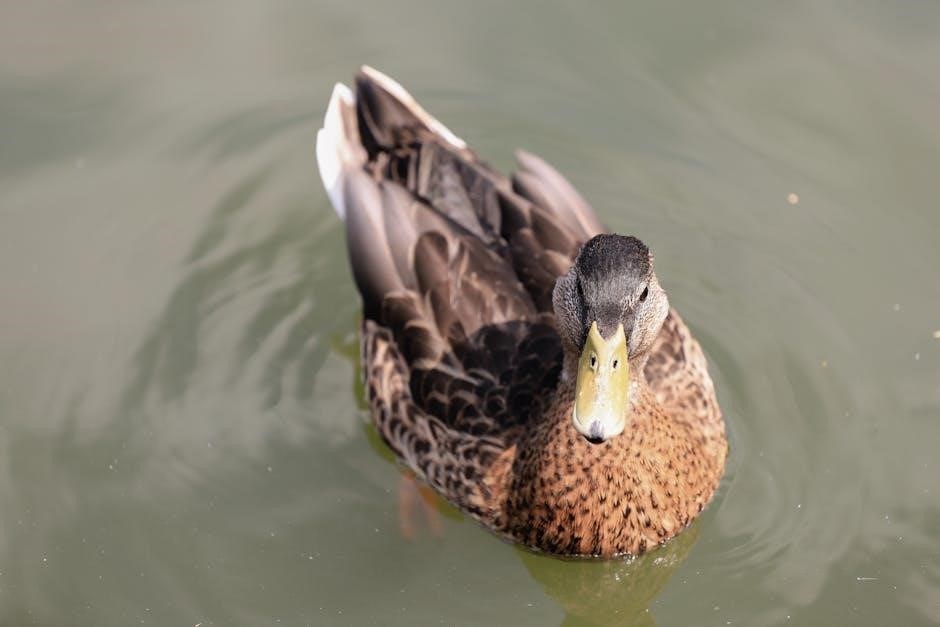
Success Rates and What to Expect
Realistic expectations are key; hunting success varies. Weather, bird migration, and hunter skill influence outcomes. Guides provide expertise, but guarantees are impossible.
Realistic Expectations for a Successful Hunt
A truly successful Michigan duck hunt isn’t solely defined by a full strap. Factors like weather patterns, fluctuating bird populations, and hunting pressure significantly impact results. Experienced guides will manage expectations, focusing on a quality experience—good shooting, enjoyable camaraderie, and appreciating the natural beauty of Michigan’s landscapes. Understand that consistent limits aren’t always achievable, but a well-planned hunt offers lasting memories regardless of the final bag count.
Factors Influencing Hunting Success
Several elements contribute to a productive Michigan duck hunt. Weather plays a crucial role; cold fronts often trigger migrations. Scouting is paramount, identifying actively used feeding and resting areas. Hunting pressure in specific locations impacts bird availability. Guide expertise in calling, decoy placement, and adapting to changing conditions significantly boosts chances, as does proper equipment and adherence to ethical hunting practices.
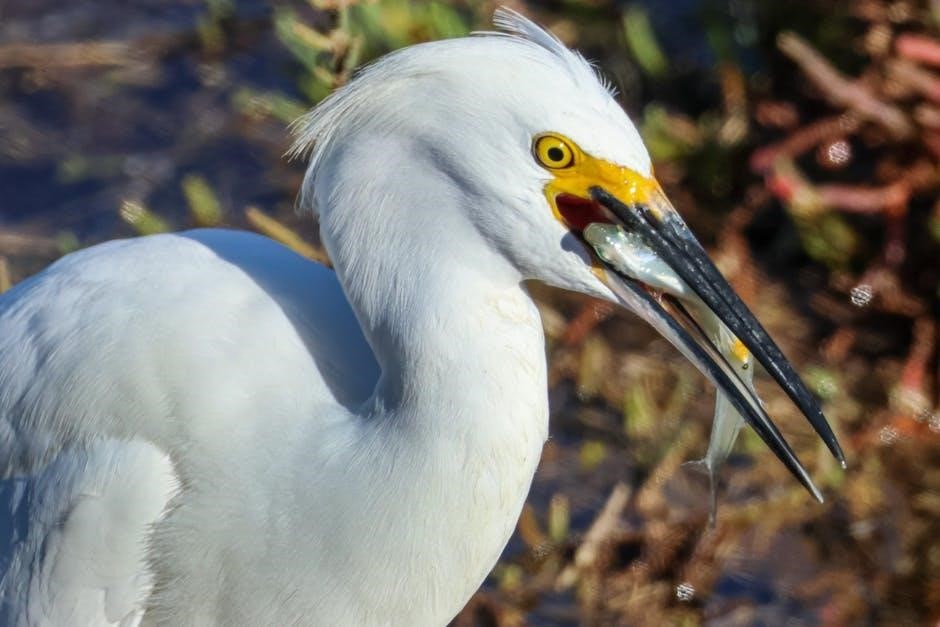
Legal Considerations and Licensing
Michigan requires a valid hunting license, and waterfowl identification is essential. A federal duck stamp is also mandatory for hunters over 16, ensuring legal compliance.
Michigan Hunting License Requirements
To legally hunt ducks in Michigan, residents and non-residents must obtain a valid Michigan hunting license. This typically involves completing a hunter safety course, especially for first-time hunters. Licenses are available online through the Michigan DNR’s E-License system or at authorized retailers.
Different license types cater to various hunting scenarios, including resident, non-resident, and combination licenses. Be sure to check the DNR website for specific requirements and associated fees before your hunt.
Federal Duck Stamp Requirements
In addition to a Michigan hunting license, waterfowl hunters age 16 and older must possess a valid Federal Duck Stamp. This stamp is required for hunting migratory waterfowl, including ducks and geese. Hunters can purchase the stamp at many post offices or online through the U.S. Fish & Wildlife Service.
The revenue generated from Duck Stamp sales directly supports wetland conservation efforts nationwide, benefiting waterfowl populations and habitats.